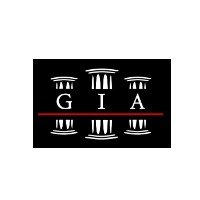Best Data Center & Digital Infrastructure Lawyers in Quezon City
Share your needs with us, get contacted by law firms.
Free. Takes 2 min.
List of the best lawyers in Quezon City, Philippines
About Data Center & Digital Infrastructure Law in Quezon City, Philippines
Data centers and digital infrastructure are at the heart of Quezon City's rapid technological growth. These facilities house critical IT equipment, providing storage, processing, and networking capabilities essential for businesses, government organizations, and individuals. Digital infrastructure extends beyond data centers, encompassing high-speed internet connectivity, telecommunications towers, fiber optic lines, and cloud computing platforms. As data usage increases, so do the legal challenges surrounding land use, zoning compliance, privacy, cybersecurity, and regulatory approvals.
Legal frameworks in the Philippines strive to balance infrastructure expansion with the protection of community interests, data privacy, and public safety. In Quezon City, local ordinances work in concert with national laws to guide the development, operation, and maintenance of data centers and digital infrastructure.
Why You May Need a Lawyer
There are several scenarios where consulting a lawyer specializing in data center and digital infrastructure law in Quezon City can be essential. These include:
- Securing the proper permits and approvals for building or operating a data center
- Navigating local zoning and land use regulations
- Ensuring compliance with the Data Privacy Act and cybersecurity standards
- Drafting and reviewing contracts with equipment suppliers, IT service providers, and partners
- Addressing disputes with local authorities, neighbors, or other businesses
- Managing intellectual property rights as they relate to software, hardware, and proprietary data systems
- Handling employment and labor issues unique to digital infrastructure operations
- Guidance on government incentives and tax structures targeting technology investments
Having legal support can prevent costly mistakes and ensure compliance with both local and national regulations.
Local Laws Overview
Quezon City enforces several laws and regulations affecting data centers and digital infrastructure:
- Zoning and Land Use: Zoning ordinances dictate where you can build or operate a data center. Knowledge of the permitted use in specific districts is crucial.
- Building Codes and Fire Safety: Data center construction must comply with local building codes, which include fire safety systems, energy efficiency requirements, and structural integrity.
- Data Privacy: The Data Privacy Act of 2012 outlines requirements for processing personal data. Organizations must implement safeguards to protect sensitive information.
- Cybersecurity Standards: Operators are expected to adhere to cybersecurity measures to prevent breaches and protect critical infrastructure.
- Environmental Regulations: Environmental permits may be required, especially concerning energy usage, waste management, and cooling systems.
- Business Permits: All facilities must secure the relevant business permits and renewals from the Quezon City local government.
- Tax and Incentives: The Philippine Economic Zone Authority (PEZA) and Board of Investments (BOI) provide incentives for technology investments, which often require compliance with specific guidelines.
It is always important to stay updated with any changes or new ordinances affecting digital infrastructure within Quezon City.
Frequently Asked Questions
What permits are required to set up a data center in Quezon City?
Generally, you need a building permit, business permit, and electrical permit. Additional clearances from the fire department, environmental offices, and zoning authorities may also be necessary.
Are there restrictions on where data centers can be built?
Yes, local zoning ordinances determine which districts can host data centers. Check with the Quezon City Zoning Administration Unit to verify if your property's location is zoned for this use.
How does the Data Privacy Act affect data center operations?
Operators must ensure personal and sensitive data are processed securely and are obliged to implement organizational, physical, and technical measures to safeguard data privacy.
What are the common environmental compliance requirements?
Depending on size and energy demand, data centers may need an Environmental Compliance Certificate, especially if their operations impact local ecosystems or generate significant waste or emissions.
Do I need to register my data center business with any national agencies?
Beyond the local government, registration with the Department of Information and Communications Technology, PEZA, or BOI may be required if seeking investment incentives.
What types of contracts should be reviewed by a lawyer?
It is advisable to have legal review of contracts with equipment vendors, service providers, cloud partners, tenants, and employees to mitigate risks and ensure enforceability.
How are cybersecurity obligations enforced?
Entities must implement reasonable security measures. Regulatory agencies can conduct audits, and data breaches may lead to investigations, penalties, and mandatory notifications.
Are tax incentives available for data centers in Quezon City?
Yes, data centers may be eligible for special tax incentives if registered with PEZA or BOI, particularly if they meet criteria for pioneering IT infrastructure projects.
Can residential areas host data centers?
Typically, large-scale facilities are not allowed in residential zones. Smaller installations may be permitted if they do not disrupt the neighborhood or violate zoning laws.
What are the penalties for non-compliance with local data center laws?
Violations can result in fines, suspension of operations, or even closure of facilities, especially in cases of failure to obtain proper permits or breaches of data and cybersecurity regulations.
Additional Resources
For more guidance and official information, consider reaching out to:
- Quezon City Business Permits and Licensing Office
- Quezon City Zoning Administration Unit
- Department of Information and Communications Technology (DICT)
- National Privacy Commission (NPC)
- Philippine Economic Zone Authority (PEZA)
- Board of Investments (BOI)
- Local environmental and fire safety offices
- The Integrated Bar of the Philippines - Quezon City Chapter
These agencies can provide forms, guidelines, updates, and direct legal referrals related to data centers and digital infrastructure.
Next Steps
If you need legal assistance in data center or digital infrastructure matters in Quezon City, consider the following steps:
- Determine your specific needs, such as permits, compliance advice, or dispute resolution.
- Gather all relevant documents, plans, and contracts pertaining to your data center project or digital infrastructure issue.
- Contact a lawyer or law firm with experience in data privacy, information and communications technology, or real estate and zoning matters.
- Consult with local government units or listed agencies for initial direction and regulatory requirements.
- Stay informed about new legislation or ordinances that may impact ongoing or future digital infrastructure developments.
Having the right legal support ensures your data center or digital infrastructure project in Quezon City is compliant, protected, and positioned for success.
Lawzana helps you find the best lawyers and law firms in Quezon City through a curated and pre-screened list of qualified legal professionals. Our platform offers rankings and detailed profiles of attorneys and law firms, allowing you to compare based on practice areas, including Data Center & Digital Infrastructure, experience, and client feedback.
Each profile includes a description of the firm's areas of practice, client reviews, team members and partners, year of establishment, spoken languages, office locations, contact information, social media presence, and any published articles or resources. Most firms on our platform speak English and are experienced in both local and international legal matters.
Get a quote from top-rated law firms in Quezon City, Philippines — quickly, securely, and without unnecessary hassle.
Disclaimer:
The information provided on this page is for general informational purposes only and does not constitute legal advice. While we strive to ensure the accuracy and relevance of the content, legal information may change over time, and interpretations of the law can vary. You should always consult with a qualified legal professional for advice specific to your situation.
We disclaim all liability for actions taken or not taken based on the content of this page. If you believe any information is incorrect or outdated, please contact us, and we will review and update it where appropriate.










